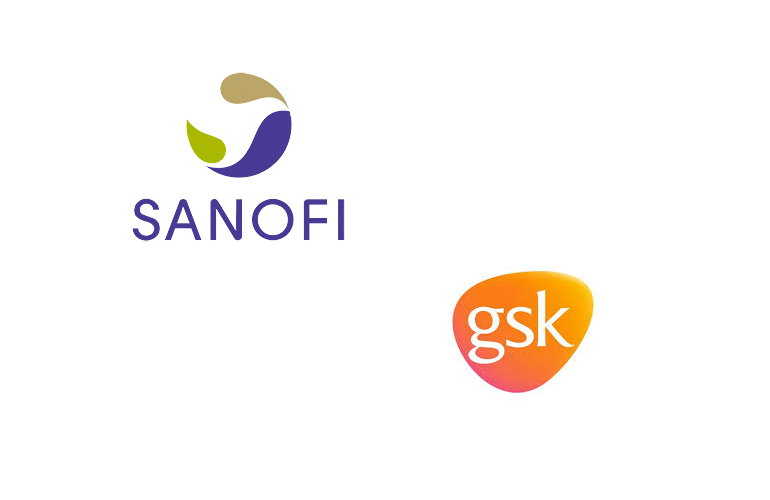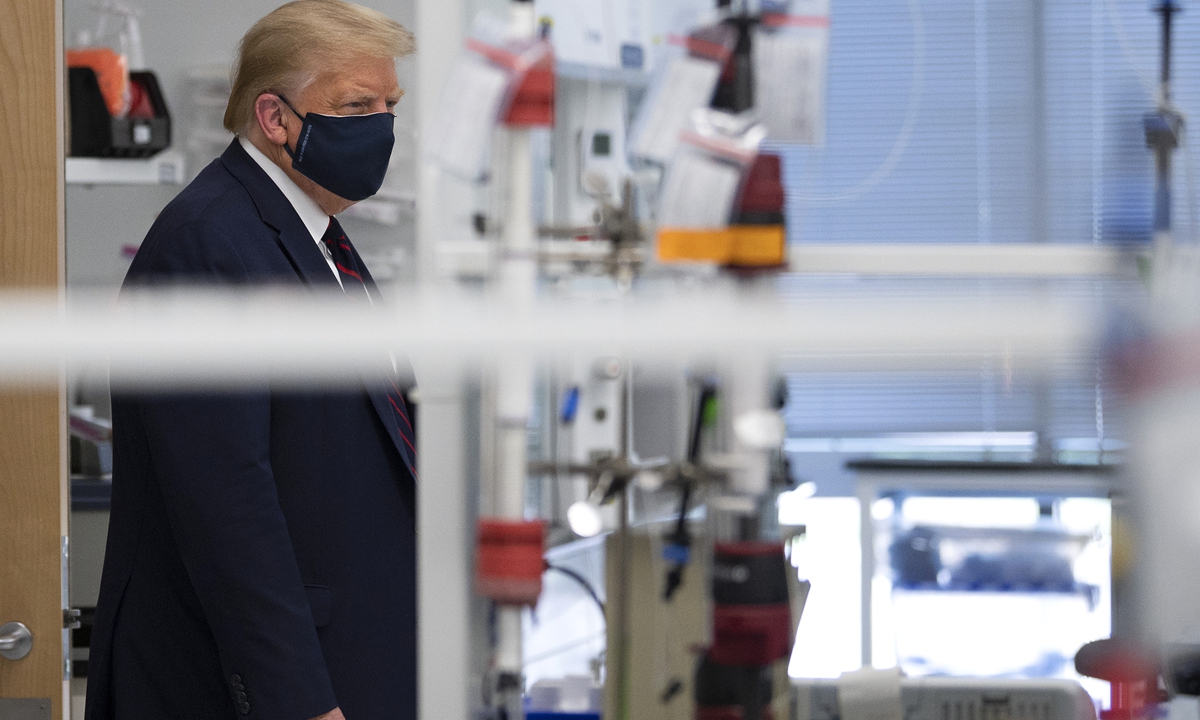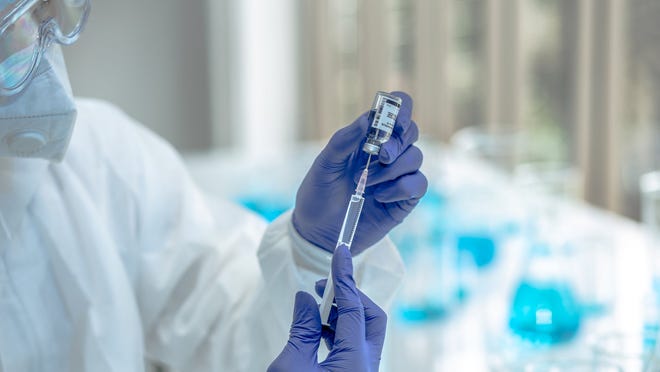 News
News
US To Add 100 Million Doses of COVID Vaccine for $2.1 Billion
The agreement calls for the U.S. government to pay French drug maker Sanofi (SASY.PA) and British pharmaceutical giant GlaxoSmithKline GSK.L. up to $2.1 billion to supply it with enough vaccines for 50 million people, with the option to buy another 500 million doses.
The purchase falls under the Trump administration’s so-called Operation Warp Speed, intended to rush a COVID-19 vaccine to the market by the end of 2020.
“Today’s investment supports our latest vaccine candidate, an adjuvanted product being developed by Sanofi and GSK, all the way through clinical trials and manufacturing, with the potential to bring hundreds of millions of safe and effective doses to the American people,” Alex Azar, secretary of the U.S. Department of Health and Human Services, said in announcing the deal.
Who Are The Sellers?
The United States announced Friday it will pay French pharmaceutical company Sanofi and Great Britain’s GlaxoSmithKline up to $2.1 billion to test and produce 100 million doses of an experimental coronavirus vaccine.

More than half of the money will support further development and early-stage clinical trials to ensure it is safe and effective. The rest will pay for the first 100 million doses, with an option on 500 million more.
The majority of the $2.1 billion will go to Sanofi, which made the vaccine candidate. GlaxoSmithKline made a booster that improves how the body responds to it.
The deal is part of Operation Warp Speed, a White House-led initiative aimed at getting a vaccine to stop SARS-CoV-2, the virus that causes COVID-19. The Trump administration initiative has now spent more than $8 billion on experimental vaccines that may or may not make it across the finish line.
How Will The Deal Be Completed?
The companies are collaborating with the U.S. Department of Health and Human Services and the Department of Defense to scale up their manufacturing capabilities in the United States.

Sanofi’s experimental vaccine uses DNA and a never-released experimental vaccine against the SARS virus. Phase 1 and Phase 2 clinical tests of the candidate vaccine will begin in September, said Thomas Triomphe, global head of Sanofi Pasteur, Sanofi’s vaccine wing.
The potential vaccine could begin Phase 3 studies, the final phase before licensing, by the end of 2020. If it’s shown to be safe and effective, the companies anticipate seeking regulatory approval in the first half of 2021.
This is the fourth deal in which the federal government has committed to buy doses if companies develop successful coronavirus vaccines.
Deaths In The US Are Expected to Soar
The coronavirus, which first appeared in China, has infected 4.5 million people in the U.S. and killed more than 152,000 Americans, according to a Reuters tally.
The U.S. Centers for Disease Control on Friday forecast between 168,000 and 182,000 total fatalities by August 22, predicting that deaths will rise fastest in Alabama, Kentucky, New Jersey, Puerto Rico, Tennessee and Washington state.
The CDC also released a study that said COVID-19 had spread to nearly half the staff and campers at a sleep-away camp in Georgia over a week and a half ago.
The investigation demonstrated “that children of all ages are susceptible to SARS-CoV-2 infection and, contrary to early reports, might play an important role in transmission.”
New infections rose by nearly 2,000 in Illinois on Friday, according to the state health department, the highest single-day increase since May. Neighboring Indiana in the Midwest saw a spike of 901 new cases.
A top White House pandemic advisor, Dr. Deborah Birx, has said the virus appeared to be shifting away from Sunbelt states, including Arizona, California, Florida and Texas, and moving into the Midwest.

Birx, coordinator of the White House coronavirus task force, said on Thursday that Ohio, Kentucky, Tennessee, Missouri, Kansas and Nebraska were particularly at risk.
Other Companies and Contenders In The Vaccine Run
Under an agreement struck in May, British-Swedish firm AstraZeneca would receive $1.2 billion for 300 million doses. In July, a $1.95 billion deal was announced with U.S.-based Pfizer for 100 million doses. And Maryland-based Novavax announced in July it would receive $1.6 billion from the government to fund development, testing and 100 million doses of its vaccine candidate.
“The portfolio of vaccines being assembled for Operation Warp Speed increases the odds that we will have at least one safe, effective vaccine as soon as the end of this year,” Health and Human Services Secretary Alex Azar said in a written statement.
Sanofi and GSK said they are committed to making the vaccine available globally and are building up manufacturing capabilities to produce up to 1 billion doses per year.
The DNA-based vaccine candidate is one of two the companies are working on. The other is a messenger RNA vaccine, the same type being developed by Moderna.
For the second one, they anticipate beginning Phase 1 testing by the end of 2020 and plan to have a vaccine ready to begin regulatory approval in the second half of 2021, the companies said.
The Worsening Situation
Coronavirus deaths in the United States are rising at their fastest rate since early June. Roughly one American died about every minute from COVID-19 on Wednesday.
A travel advisory went into effect in Chicago on Friday requiring travelers from neighboring Wisconsin to quarantine for 14 days. Wisconsin joined 21 other states that have seen a surge in new cases.
The COVID-19 outbreak “is not in good control” in Wisconsin said Allison Arwady, commissioner of the Chicago Department of Public Health.
In the nation’s capital, top infectious disease expert Dr. Anthony Fauci, during testimony before a U.S. House of Representatives subcommittee, fended off efforts by both Republicans and Democrats to draw him into the fierce political debate over the handling of the pandemic.
Recent Posts
- Bybit Crypto Exchange Hacked, Over $1.4 Billion in Ethereum Stolen in Record-Breaking Breach
- How Meme Coins and Influencers Are Cashing In Like Never Before
- Artificial Intelligence: Revolutionizing Music Production
- Navigating the Complexities of Title IX with Joseph Lento
- This AI-Driven Japanese Company’s Stock Has Soared 400% in 2024
- Jake Paul’s Manager Offers $20mln to IShowSpeed: “Put your signature where your Clout is”
- Is IShowSpeed Going to Be Jake Paul’s Next Boxing Opponent?
- Alessandro Peticchia: An expert in Solar PV and Renewable Energy Projects
- Sony Unveils PS5 Pro: More Power, Higher Price Tag
- New Starbucks CEO Brian Niccol Has a Turnaround Plan! Will it work?


